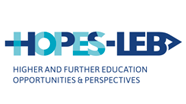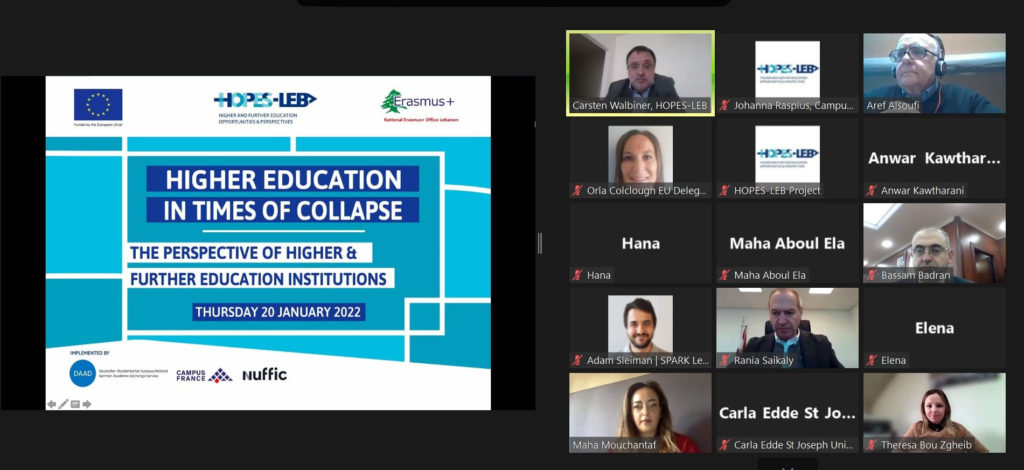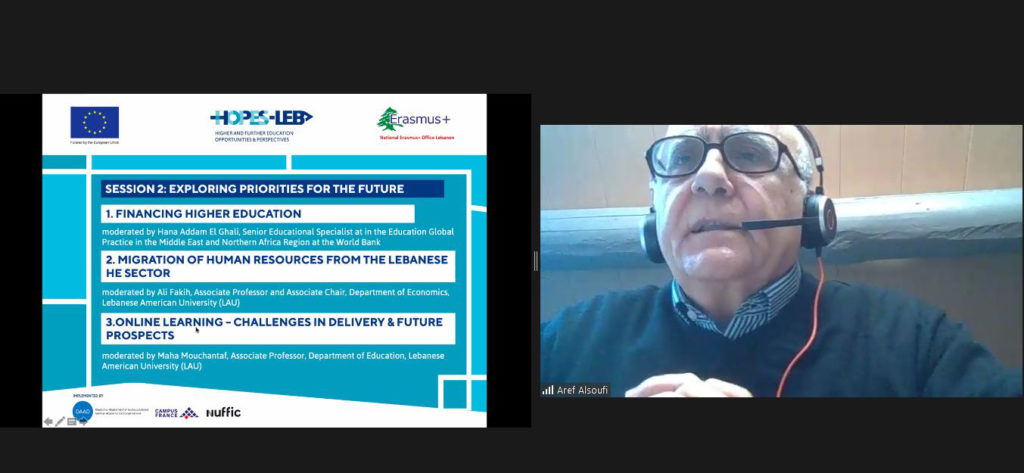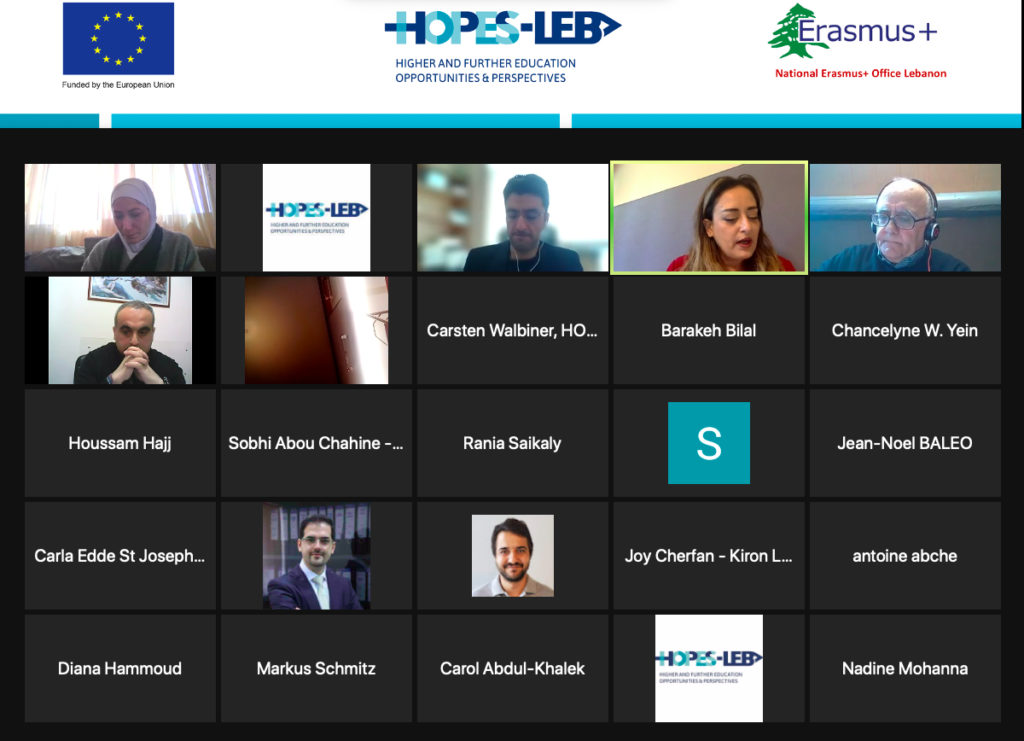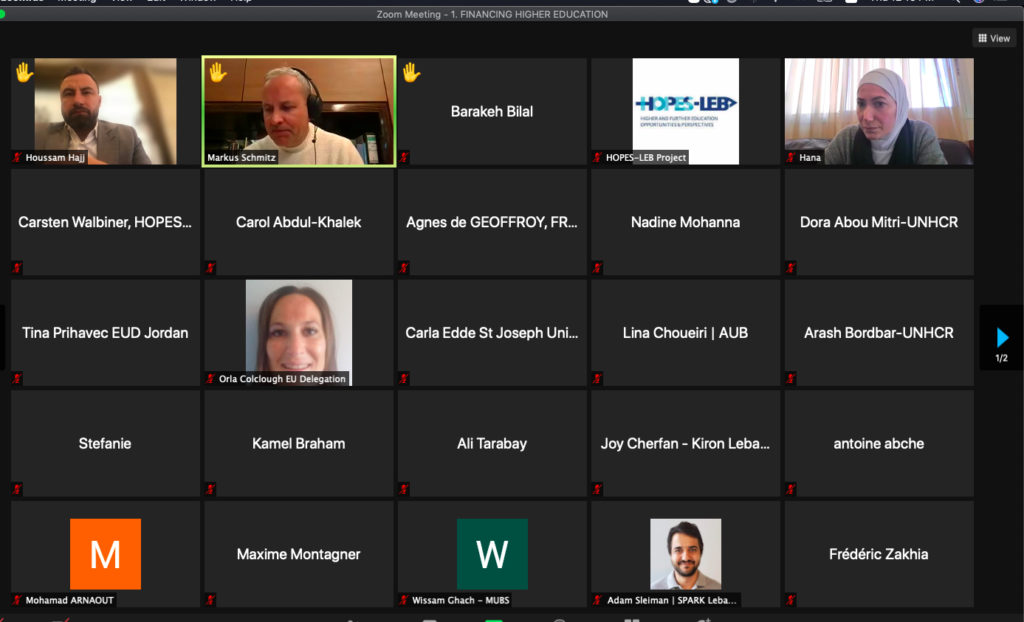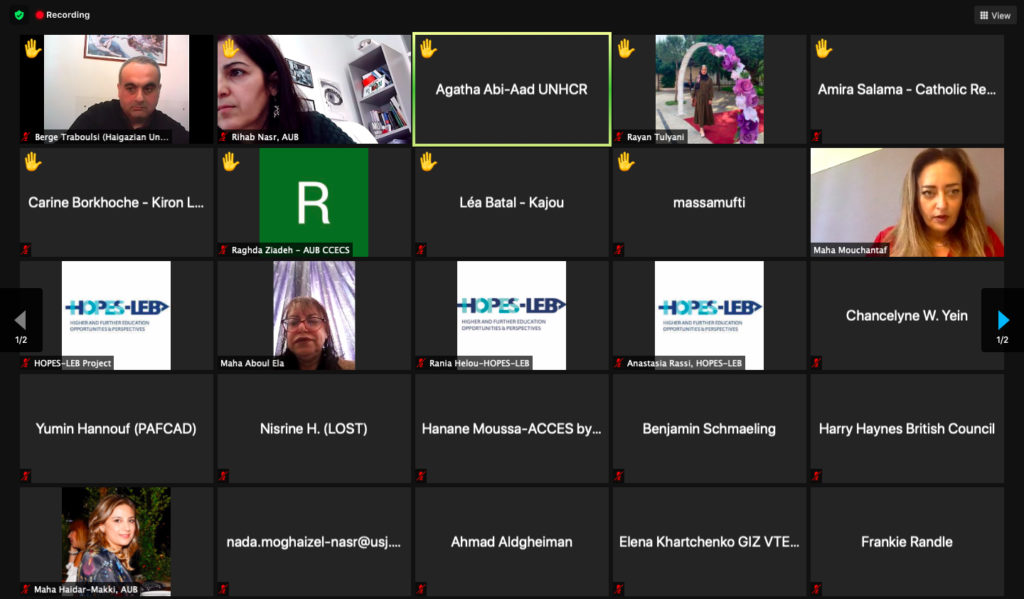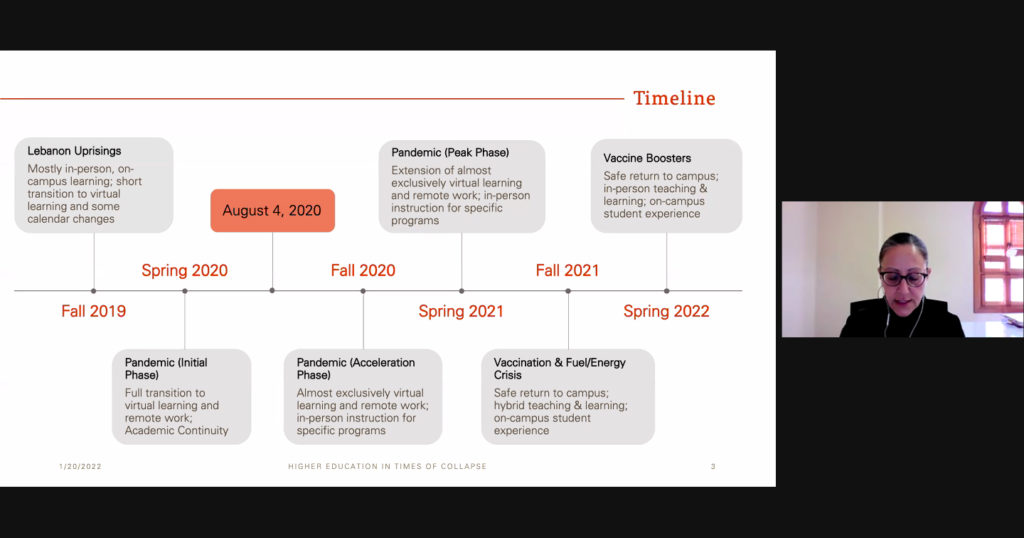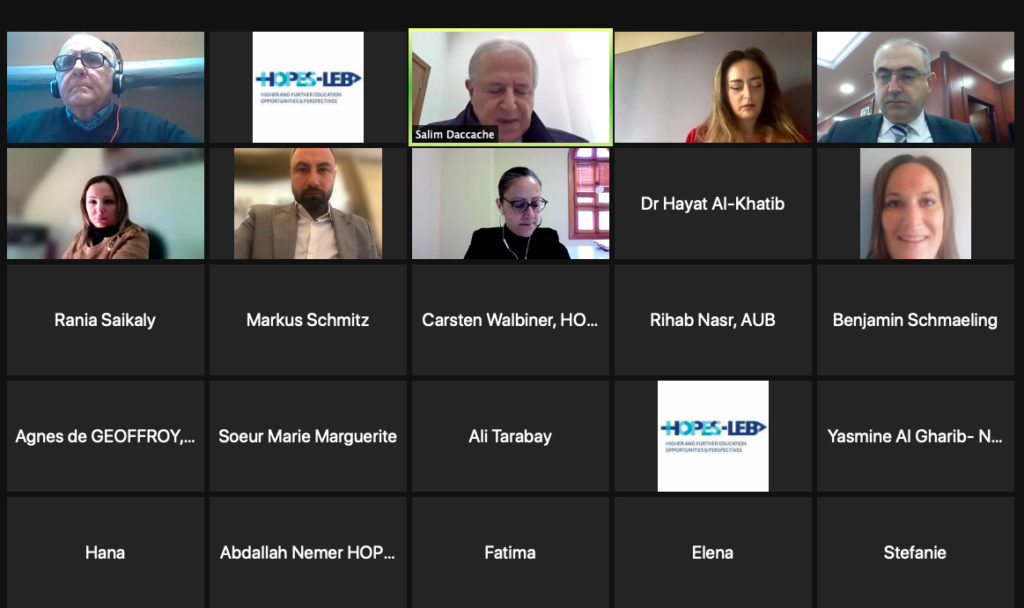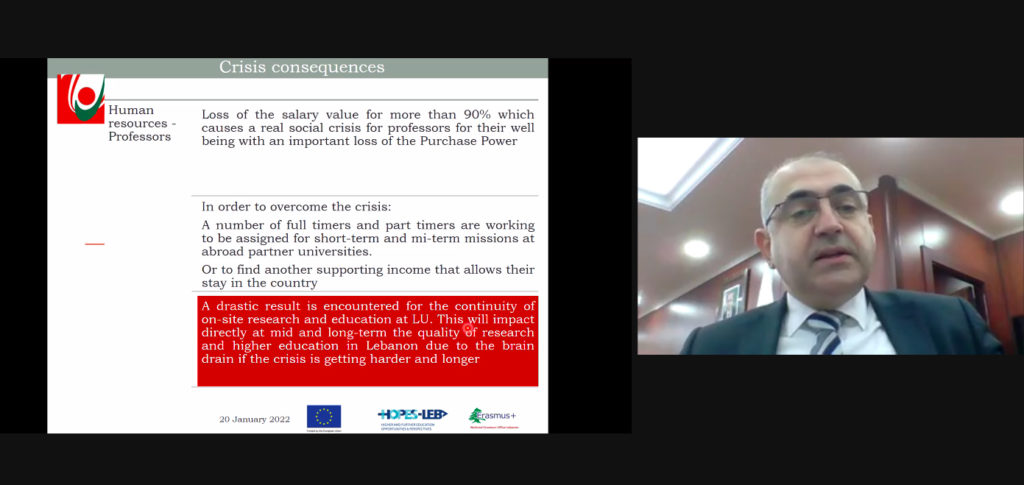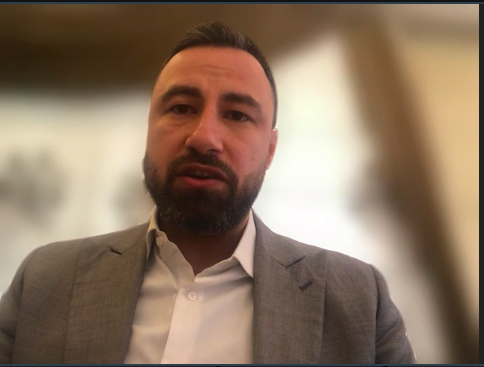HIGHER EDUCATION IN TIMES OF COLLAPSE – The perspective of higher and further education institutions
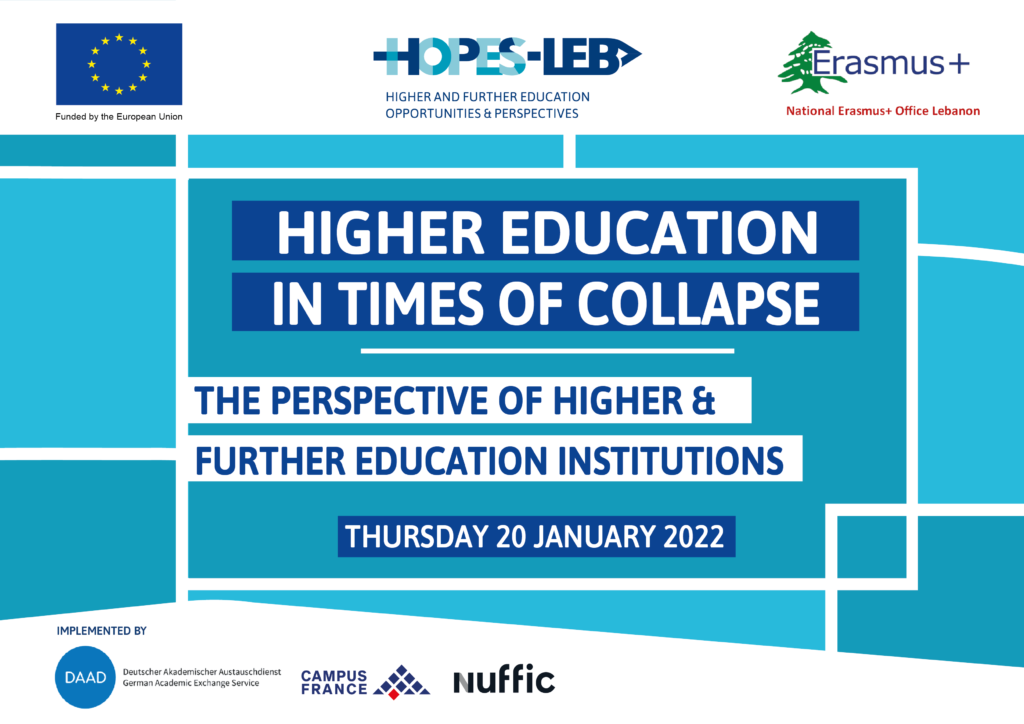
HOPES-LEB in partnership with the National Erasmus+ Office of Lebanon launched a series of stakeholder dialogues addressing “Higher Education in times of collapse”.
The first dialogue was held on Thursday 20 January 2022and focused on the perspective of higher and further education institutions. More than 155 representatives ofthe Ministry of Education and Higher education,higher and further education institutions, local and international non-governmental institutions and agencies, convenedto analyse the current situation in the Lebanese higher education sector and its impact on students and education providers.
Following welcome addresses by Mr. Fadi Yarak, Director General Higher Education-Per Interim at the Ministry of Education and Higher Education (MEHE) Lebanon, and Ms. Orla Colclough, International Aid Cooperation assistant, EU Regional Trust Fund in Response to the Syrian Crisis and Higher Education focal point at the Delegation of the European Union to Lebanon, interventions of the following guest speakers focused on approaches and implemented strategies and mitigation measures adopted by higher and further higher education institutions.
- Salim Daccache, s.j, Rector of Saint-Joseph University of Beirut (USJ) and president of the Universities Association of Lebanon (UAOLB)
- Hanadi Berri, Director General of Technical and Vocational Education- Ministry of Education and Higher Education (MEHE) Lebanon
- Bassam Badran, President of the Lebanese University
- Ali Tarabay, Provost of the Lebanese International University (LIU)
- Lina Choueiri,Deputy Provost of the American University of Beirut (AUB)
During the second session, participants joined three different working groups to discuss further challenges, priorities and explore recommendations for the future.
- Financing higher education moderated by Hana Addam El Ghali, Senior Educational Specialist at in the Education Global Practice in the Middle East and Northern Africa Region at the World Bank
- Migration of human resources from the Lebanese HE sector, moderated by Ali Fakih, Associate Professor and Associate Chair, Department of Economics, Lebanese American University (LAU)
- Online learning – challenges in delivery and future prospects, moderated by Maha Mouchantaf, Associate Professor, Department of Education, Lebanese American University (LAU)
The discussions in working groups allowed to deepen the understanding of the needs and expectations of higher and further institutions and to identify priorities and recommendations to take into consideration to improve response mechanisms in the context of the prevailing situation in the country.
————————————————————————-
Context
In the throes of a deeply rooted political and socio-economic crisis exacerbated since 2019, Lebanon has been struggling in the last two years with the repercussions of a manifold of strains including the COVID-19 pandemic, the August 2020 Beirut blast and the ever-evolving economic meltdown.
These overlapping crises emerge on the background of a turbulent history, a complex geopolitical context and the toll of the Syrian crisis, now in its eleventh year. Lebanon is with approximately one million registered individuals considered the country in the world with the highest per capita ratio of refugees from Syria.
The local unstable economy, political situation and growing social tensions have turned Lebanon in a confusing terrain quite difficult to navigate in when it comes to providing Lebanese youth and refugees from Syria with the necessary support to better access quality further and higher education opportunities.
Amidst the various restrictions, electricity blackouts, limited access to internet and rationed fuel and the surge in tuition fees, only a small percentage of the youth, from the host community and refugees from Syria as well, has the financial and technical means or the institutional access to continue higher education.
Despite the enormous efforts made, the impact of the economic distress caused by Lebanon’s financial crisis has had a major fall-out on Lebanon’s higher and further education institutions who are striving hard to preserve the continuity and quality of higher education which has for long periods of time been one of the great assets of Lebanon.
While it is impossible to anticipate long-term solutions given the rapid escalation of the situation in Lebanon, all protagonists agree that maintaining the availability and quality of education and higher education must be considered of paramount priority to prevent the emergence of a lost generation of students, an issue that will have lasting implications for their personal future and that of their countries as well.


